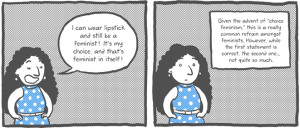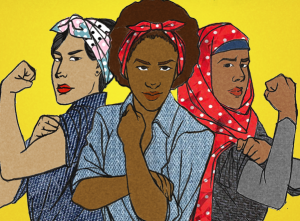
Source: Levo
Entrepreneurship isn’t always about taking the earning cap off of your income-generating capacity. For some of us, the catalyst for starting our own business had less to do with income, and more to do with personal impact.
For some of us, the idea of work-life anything is absurd, as we are always alive, whether at work or at play, and we want to integrate our whole self into our day, with fulfillment and joy as core values.
I don’t know about you, but I’m positive my life is still in existence during standard business operating hours.
I am always alive, and therefore, my work and my life are not separate, no more than my gender and my experience. I am always only myself and where I am in any moment.
Am I only a woman when I look, speak, and act inside the parameters of a man’s mind? Am I only a mother when I’m physically near my daughters?
Work-life segmenting is illogical, and it forces us to segment, report, and compartmentalize in areas where we need to look at the whole picture, consider our whole selves, and embrace (rather than feel ashamed of) how we want to feel when we pursue our vocations.
Ultimately, impact-driven entrepreneurs want to take the idea of happiness off of the hard-to-reach “top shelf” and into the fully accessible space of everyday living.
We crave ownership, not just of a business license and a title, but of our authentic, fully-expressed voice.
Taking ownership of that seemingly elusive authentic voice will call for different actions at various times in our lives.
This is why I encourage impact-driven entrepreneurs to shift from the rigid, structure-focused element of business and explore a less segmented, more harmonious approach to living and working.
One year, ownership might look like the dissolving of a longtime friendship that became emotionally unsustainable.
Another year, it might look like moving to a new city to pursue the life we want to live.
And yet another time — maybe even oftentimes — ownership may call for us to make peace with what we crave and learn how to transition our desires and talents into our vocation.
That transition process is usually the genesis of a deeper connection to the why behind our work, and it strengthens our desire to separate ourselves from work done only for money.
In this sense, spiritual entrepreneurship is not just about life coaches and spirit junkies, but also about integrated core emotional and moral values into the fiber of the businesses we run.
But there is a caveat.
There is a pervasive fear of becoming the starving artist keenly aligned to her particular form of art, creating beautiful, resonating work, but unable to pay three bills on time in the same billing cycle.
This prevailing image seeps into our psyches and finds us believing that it is nearly impossible to be both emotionally fulfilled and financially secure.
The art-versus-the-system battle renders us doubtful and maybe even a bit jaded. This is often also the genesis of an imbalanced shift from intuitive decision-making to the outwardly focused, emotionally deficient, report-not-rapport, business mindset.
The business mindset tells us to focus more on timelines and tasks and less on flexibility, feelings, and flow.
The messages that are most prevalent in our society say that business and life don’t mix, hence the grossly overused idiom work-life balance.
That term and mindset promotes compartmentalizing and calls for a constant judgment of how we spend our time, without factoring in how we want to feel while we spend our time, whether at work or at play.
The separation between vocation and voice is, at its core, a separation between our masculine and feminine selves.
This separation is an unfortunate reality, as it relegates feminine principles to the background, or worse yet, labels them as inappropriate and even detrimental to sound business practices.
Exploring 3 Feminine-Centered Principles: Flexibility, Feelings, and Flow
On Flexibility and Feelings (Harmony, Not Balance)
If we must create any separation between our work and personal lives, it is less helpful to seek out work-life balance and more emotionally sustainable to transition into the integration of work-life harmony.
Balance calls for a firm shift of weight from one side to the next. It is definitive and either black or white. We are either productive or we’re not; we’re either working eight hours a day or we’re not; we’re either on the grind or we’re slacking.
But real life, particularly the integrative approach to real life, calls less for balance, and more for a harmony – a sway to whatever aspect of our lives we deem a priority.
In this more harmonious space, we make room for the inclusion of greater compassion for Self and less focus on the bottom line.
When we are less firm and more flexible, we are not acquiescing to the needs of everyone else. Rather, we are considerate about their needs and our own.
The standard, more masculine business mindset calls for to-do lists that validate our waking hours by focusing on drawing the line through each task at all costs.
If we do not complete a task, if we are not firm in what we expect to accomplish, and if we are not willing to push those around us to fit into whatever perception of success we deem valuable, then we are weak, we are not accomplished, we are not S.M.A.R.T. goal-setters, and a myriad of other labels devoid of one important aspect of self: how we want to feel.
On Flow (Flow, Not Force)
You’ve seen those quotes online about smiling no matter what and pushing through to victory, right?
I see memes on Instagram and Facebook that tell us to show up with a smile no matter what, to sleep when we’re dead, to wake up early to hustle harder.
Those are masculine-focused quotes. And they are one-sided and harmful in that they threaten the feminine-centered approach of flow, not force.
When we bully ourselves into swallowing feelings in the name of focus and prioritizing “hustle” over flow, we miss out on opportunities to acknowledge the feeling of forced performance and create less rigid approaches to fulfillment.
The reality is that people don’t just do; we also feel.
The notion that we must omit feelings and push through to only tasks at hand is far more irrational than the constantly neglected idea of flow.
Flow is about managing our expectations by approaching an environment with an awareness of both what is and what is desired – both for vocation and personal voice.
Generally, entrepreneurs are expected to push through, to disregard feelings, and to focus on the task at hand – as if to say that our feelings pose a threat and that we cannot manage the jobs we are to do if we allow ourselves to feel.
But we feel, no matter what we attempt to do with those feelings. And they show up, no matter how much we try to force a structure that is devoid of flow.
Flow is inclusive of structure, a masculine-centered principle, and it is also inclusive of context, meaning that we are not in tunnel-vision mode about what we believe should be, but rather that we are aware of what is, who is, and why they are.
And we use all of those factors to facilitate a design that walks us toward our desired outcomes.
Two Integration Tips for Shifting to the Feminine
1. Make a To-Feel List
To-do lists may be necessary. But what about a to-feel list?
Do not be afraid to check in with your belly to see if what you are doing at any moment is what feels good, purposeful, and even pleasant.
How do you want to feel while you are awake – not just when you are working, but throughout your entire day?
We are allowed to feel good while we chip away at the small steps to accomplishing our big goals.
We are allowed to nurture our relationship without need to feel pleasure. And we do not have to be either sharp or soft. We can be both.
Factor in your feelings. And reject the idea of showing up ready to grind, hustle, and sacrifice yourself into a less fulfilled version of who you are.
We do not have to sacrifice our emotional and physical wellness to prove that we are serious about our businesses.
As people in business, we do not have to rely on our masculinity, and thereby reject our femininity, in order to appear professional.
Flexibility, in the case of business, can be inclusive of both structure, if we are present and attuned to our feelings.
This is not only possible, but necessary if we want to stop chasing balance and instead prioritize a harmonious, more pleasant approach to our day.
When we choose harmony over balance, we are not trying to feel happy all the time, nor are we compromising structure, as we’re often told.
We are also not mothering our clients or employees by factoring in their feelings, which is a major misconception about feelings in business.
Instead, we are integrating the human element back into our work, beginning with paying attention to our own feelings, and deciding that those feelings matter.
In this way, we pave powerful paths for our employees, our clients, and ourselves to see past structure and into the soul of what we are creating through our work.
2. Build More Flow into Your Focus
In Positive Psychology, there is a principle called Flow.
It is defined as the mental state of operation in which a person performing an activity is fully immersed in a feeling of energized focus, full involvement, and enjoyment in the process of the activity.
In essence, flow is characterized by complete absorption in what one does.
Flow is absolutely feminine in that it embodies both goals and gut feeling and in that it is less about segmenting and more about integration.
Its core value – full immersion – is about performance, but not without a connection the feelings generated while performing, and the pursuit of positive feelings as well as measurable results.
Be willing to show up to any meeting, conversation, or task with both a clear idea of what you want and a willingness to create structure based on your wants and the expressed desires of anyone else involved.
This does not mean that you become what someone else needs, nor does it mean that your job is to try to appease all parties involved.
Flow is not about acquiescence, but about a whole-situation perspective.
Take the whole vision into account, including your goals and theirs, and then segmenting of work from life.
The Bigger Picture
This is not an article about getting rid of the masculine principles, but more about placing equal value on the feminine and integrating both in ways that work best for us and the environment we want to create in your business.
Ultimately, the route to exploring this more harmonious space as a person in business for themselves calls for a deeper connection to the feminine-centered principles of flexibility, emotional management, and the willingness to factor in the “people” aspect of doing business.
Feelings, with the feminine-centered approach to business, is not a threat, but a vital gauge that reminds us whether the direction in which we are being present or merely presenting for the skewed perception of professionalism.
Integrating more flexibility, more flow, and more feelings into our work is how we reclaim ourselves in our days and explore our desires less from a space of end-game and more from an appreciation of the whole journey.
[do_widget id=”text-101″]
Akilah S. Richards is a Contributing Writer for Everyday Feminism. She is a six-time author, digital content writer, and lifestyle coach who writes passionately about self-expression, womanhood, modern feminism, location independence and the unschooling lifestyle. Connect with Akilah on Instagram, Tumblr, or her #radicalselfie e-home, radicalselfie.com. Read her articles.
Search our 3000+ articles!
Read our articles about:
Our online racial justice training
Used by hundreds of universities, non-profits, and businesses.
Click to learn more




















